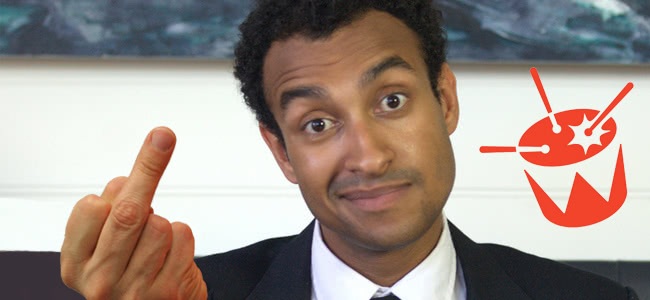Most of us in Australia love triple j. An integral part of the local music scene, the station tirelessly promotes local music and is largely responsible for the rise of some of our biggest stars, like Hilltop Hoods, Vance Joy, and many more.
But despite all the good work that our national youth broadcaster does when it comes to bringing awareness to new and even unsigned artists as well as old favourites, completely ad-free, there’s a surprising number of triple j haters out there.
Some have accused the station of betraying its largely rock-based roots and adopting a more “mainstream” playlist that mimics commercial radio, whilst others have accused it of doing just the opposite and fostering a specific “triple j Sound”.
Naturally, most of these complaints are aired online and comedian and triple j Breakfast host Matt Okine has had enough. Speaking recently to the Herald Sun ahead of his appearance as part of the Melbourne Comedy Festival, Okine hit back at the j haters.
“The internet has given everyone a sense of entitlement,” Okine told the Herald Sun. “People suddenly think everything should be tailored to their exact needs. You hear them complain: ‘Triple J has turned to shit, it’s so mainstream.’”
“Oh really? We just played Amity Affliction, followed by a West African London-based electronic duo, and an indie singer from Brooklyn,” Okine added. “If that’s mainstream, I shudder to think about the shit they’re playing on commercial stations.”
Okine noted that the level of criticism levelled at the station reaches critical mass around Hottest 100 time and it’s turned him off social media. “There’s nothing good there anymore,” he said. “It’s like the housing bubble: over-inflated.”
The comedian’s daily breakfast show with Alex Dyson recently came out gangbusters in the ratings, particularly in the key 18-35 demographic, where it beat quite a few of triple j’s commercial competitors, part of triple j’s overall rout of mainstream radio.
[include_post id=”467978″]
As we’ve previously noted, triple j has consistently dominated commercial radio in key demographics, which suggests mainstream stations might do well to take a page out of triple j’s book and start playing more Australian music.
“There’s no money attached to our ratings,” Okine told HS, “so people don’t like to focus on our numbers because it means money from advertising is being missed out on. We’re really happy. It means a lot.”
“When you replace someone like Tom Ballard, you think you’re gonna suck. You’re terrified the audience is gonna turn off.” Okine noted that looking at the demographics tuning in has forced him to reconsider some of his on-air pop culture references.
“We have and they’ll tell me: ‘You know nobody knows Degrassi Junior High anymore? The target audience was born in 1998, five years after Degrassi was even on air, you idiot.”




































